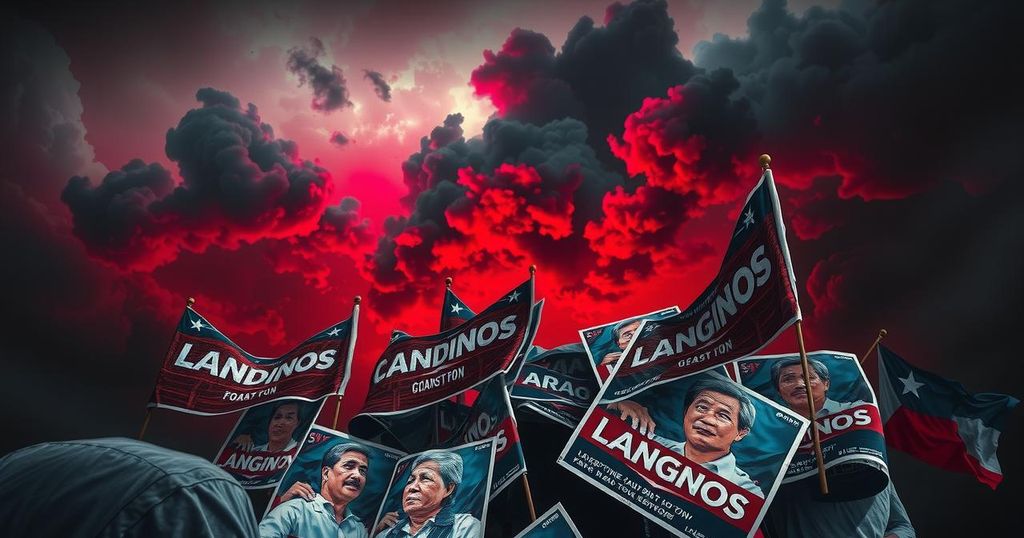Political Violence in the Philippines: A Challenging Climate Ahead of Elections

The Philippines is experiencing significant election-related violence, with Comelec reporting 46 incidents and fewer than 20 candidate fatalities. Despite a decrease in deaths compared to previous years, political analysts warn of a persistent pattern of violence fueled by local power dynamics. Efforts by Comelec to enhance security have been implemented, but entrenched family and political ties continue to challenge progress.
In the Philippines, the political landscape has become increasingly perilous as election candidates grapple with the reality of violence. More than 46 acts of political violence have been documented by the Commission on Elections (Comelec) between January 12 and April 11, 2025. Notably, mayoral candidate Kerwin Espinosa suffered serious injuries during a recent rally when he was shot, underscoring the dangers faced by those seeking public office.
Despite these alarming figures, Comelec has reported a reduction in deaths, stating that “fewer than 20” candidates have been killed this campaign season, compared to around 100 during the last general election. John Rex Laudiangco, a spokesperson for Comelec, remarked on the decrease, yet analysts warn that political violence is likely to remain a fixture, driven by the critical influence associated with municipal governance.
Danilo Reyes, an associate professor from the University of the Philippines, pointed out that local leaders possess significant authority over crucial resources, making such positions attractive yet dangerous. Regional power dynamics often favor local elites, who can act with little accountability due to weakened rule of law outside urban centers like Manila. Cleve Arguelles, CEO of WR Numero Research, highlighted that armed groups and patronage networks heighten the risks involved in local politics.
As Espinosa was waiting to address supporters, a shooter attacked from a distance of approximately 50 meters. Police investigations are ongoing concerning seven officers suspected of involvement in this violence. However, the chances of attaining justice remain low, with statistics indicating that in about 79% of violent acts against local officials from 2018 to 2022, offenders were never apprehended.
Political analysts argue that the cooperation between national and local leaders perpetuates a cycle of violence—where local entities are tolerated by the national government in exchange for electoral support. Such dynamics not only undermine political stability but also exacerbate violence, particularly in regions like the Bangsamoro Autonomous Region in Muslim Mindanao, where election-related disorder has long been rampant.
In a timely response, Comelec has asserted control over certain municipalities to enhance security. Following the assassination of a local election officer, measures were implemented to directly supervise both local election officials and law enforcement in Buluan and Datu Odin Sinsuat. However, these measures may be insufficient to counteract the deeply embedded issues of family loyalty and political rivalry that define local governance in the Philippines,
Laudiangco acknowledged the challenges posed by the interrelated nature of family and political affiliations, recognizing that these connections often lead to divisive tensions among constituents. While he expressed hope for gradual improvement, the entrenched culture of clannishness suggests that achieving meaningful change will require sustained effort.
The political climate in the Philippines remains fraught with violence as candidates contend with the risks associated with public office. Although there has been a reported decline in the number of political killings this campaign season, the legacy of violence persists, particularly in local governance, influenced by deeply entrenched family and power dynamics. The steps taken by Comelec to enhance security are crucial yet will need to address the underlying factors fostering such violence if they are to be effective in the long term.
Original Source: www.arabnews.com







